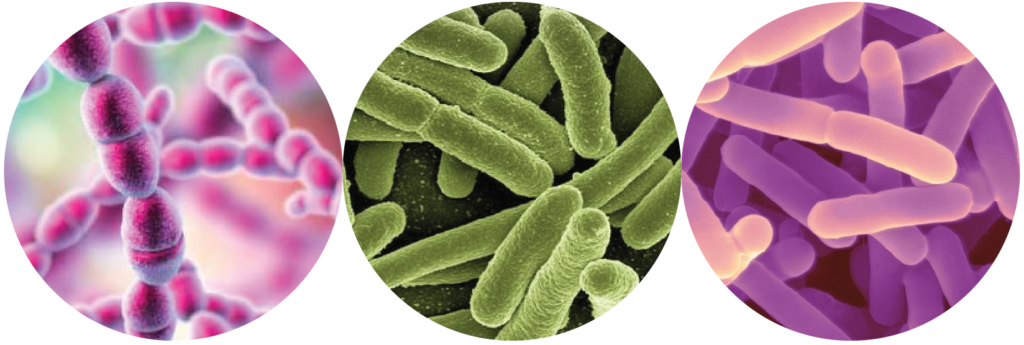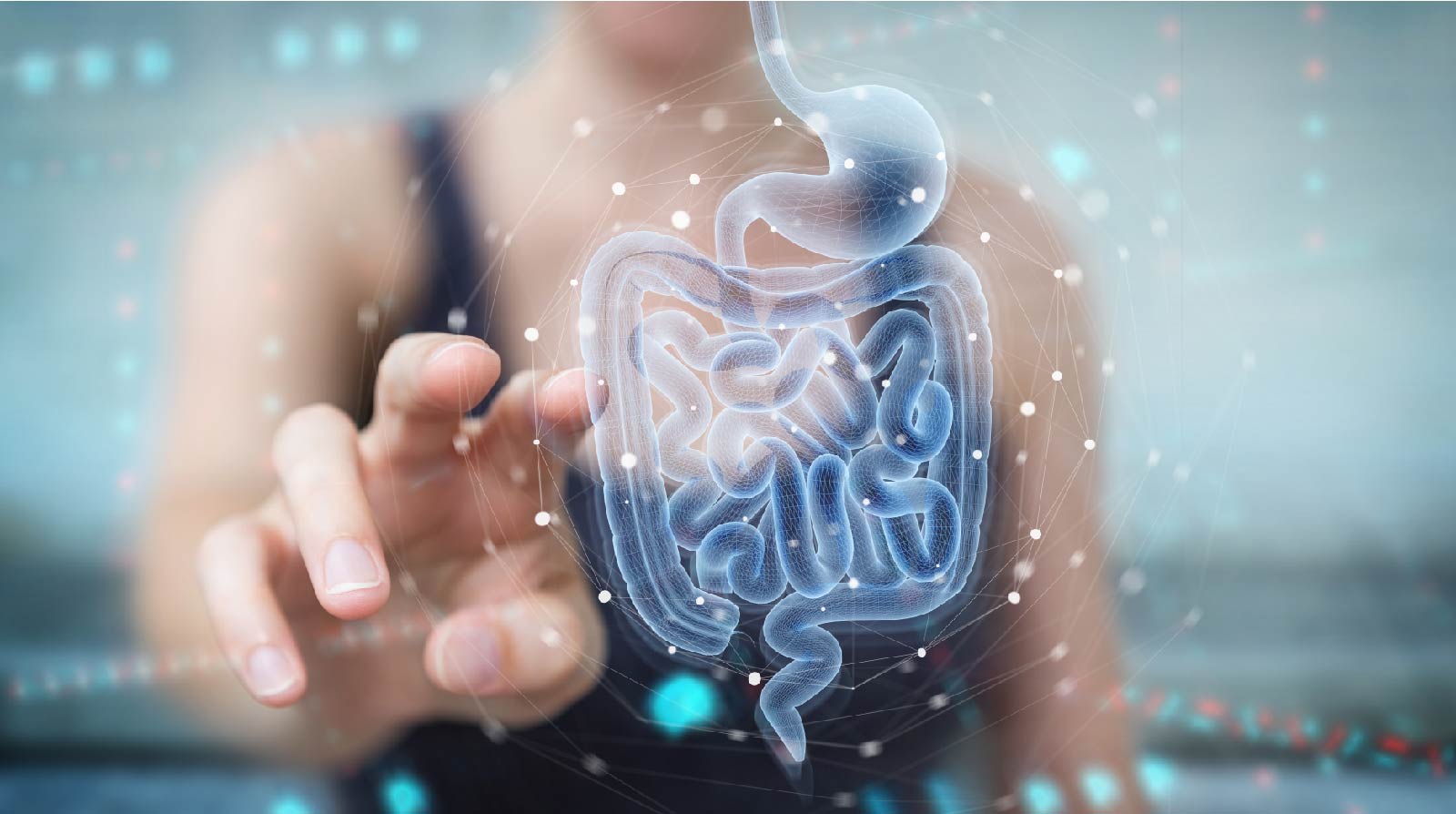The gut is a remarkable ecosystem teeming with trillions of microorganisms, collectively known as the gut microbiome. Maintaining a well-balanced gut microbiome is most commonly associated with healthy digestion and strong gastrointestinal tract health, however the benefits extend far beyond this. In this blog, we’ll explore the significance of a well-balanced gut microbiome and the potential disruptions it can face, as well as key probiotic strains within the Lactobacillus and Bifidobacterium genera and how they can offer support to achieve optimal gut health, immune function, vaginal health, brain function, oral health and overall well-being.
Balance is Key
Within the gastrointestinal tract, the intricate microbiome community of bacteria, viruses, and fungi work together to maintain a healthy balance, otherwise known as homeostasis. This equilibrium is the backbone of the digestive system – the bacteria within the gut aid in proper digestion and nutrient absorption, produce digestive enzymes that break down complex carbohydrates, fibers, and proteins to eliminate toxins and extract energy, and help regulate bowel movements to prevent constipation, diarrhea, gas and bloating.
Sometimes, this delicate balance of beneficial and pathogenic gut bacteria can be disrupted, leading to a condition called gut dysbiosis. This imbalance may be caused by factors such as poor dietary choices, stress, overuse of antibiotics, and certain medical conditions. Gut dysbiosis can result in an overgrowth of harmful bacteria, compromising the gut lining’s integrity and leading to a variety of health issues.

Cultivating the Good
Probiotics, often referred to as “good” or “friendly” bacteria, are live microorganisms that support the gut microbiome by introducing beneficial bacteria into the gut to compete for resources. These “good” probiotic bacteria work by adhering to the intestinal cells and implanting in the intestines, thus limiting the growth of pathogenic bacteria and crowding out the existing harmful bacteria. As a result, a healthy balance of microorganisms is restored.
Beyond Digestive Support
By maintaining gut microbiome balance, probiotics play a critical role in supporting not only digestive health but also influencing various aspects of overall well-being. Additional key health benefits include:
- Enhancing Gut Barrier: Probiotics support the gut lining by stimulating the production of mucus, which aids in maintaining the integrity of the gut barrier. This can prevent the entry of harmful substances into the bloodstream and alleviate conditions like inflammation and leaky gut syndrome.
- Immune System Support: A significant portion of the immune system resides in the gut. Research suggests that probiotics can positively modulate the immune system, enhancing its ability to defend against pathogens and inflammation.
- Women’s Health: Probiotics can support a balanced vaginal microbiome, reducing the risk of urinary tract challenges and maintaining overall urogenital health.
- Oral Health: Probiotics may contribute to better oral health by reducing the growth of harmful bacteria in the mouth and helping to support gum health.
- Vitamin Production: Certain gut bacteria produce essential vitamins like B vitamins and vitamin K, which are vital for various bodily functions.
- Mental Health: The microbiome communicates with the brain through the gut-brain axis, affecting mood, cognition, and mental health. Certain gut bacteria also produce neurotransmitters like serotonin and dopamine, which are crucial for mood regulation and mental well-being.
Probiotic Profusion
There are almost 8,000 known probiotic strains, with trillions of strains yet to be discovered. Each strain offers unique benefits through various mechanisms of action. Below is a brief review of a few of the most researched probiotic strains:

- Lactobacillus acidophilus: L. acidophilus produces vitamin K, lactase and anti-microbial substances and supports digestion of lactose. Scientists have discovered that administering L. acidophilus helps reduce the colonization of harmful bacteria, such as E. coli within the digestive tract as well as fight off bacterial vaginosis.
- Lactobacillus casei: A lactic-acid producer that has been found to assist in the colonization of beneficial bacteria, L. casei supports the growth of L. acidophilus, which can help guard against constipation and irritable bowels.
- Lactobacillus rhamnosus: L. rhamnosus, one of the most widely studied probiotic strains, works to balance the GI microflora. Perhaps most notable about L. rhamnosus is its ability to tolerate and even thrive in the typically acidic conditions found in the stomach.
- Bifidobacterium breve: The presence of B. breve appears to inhibit E coli. B. breve is also present in the vagina, where it helps to inhibit overgrowth of Candida albicans, the primary cause of yeast concerns in women. The job of B. breve in the digestive tract is to ferment sugars and produce lactic acid as well as acetic acid.
- Lactobacillus bulgaricus: L. bulgaricus effectively metabolizes sugars (including starches and fibers) to produce lactic acid. The generation of lactic acid in the intestine decreases the pH of the intestinal tract which makes it less suitable for the growth of acid-tolerant microbes including those that can act as pathogens. L. bulgaricus is also effective at reducing the lactose load in individuals who are lactose intolerant, thereby allowing them to ingest higher quantities of dairy products.
- Lactobacillus reuteri: L. reuteri is found in different body sites, including the GI tract, urinary tract, skin and breast milk. This probiotic bacterium has been studied for its antimicrobial and immunomodulatory activity. L. reuteri is well-known for its abilities to enhance mucosal barrier function. This probiotic has also been shown to support respiratory function, provide relief from digestive discomfort and promote vaginal microbiota.
- Bifidobacterium bifidum: B. bifidum is the most common probiotic bacteria in the body and is an important constituent of the colonic microbiome. This probiotic is often found in healthy vaginas.
- Saccharomyces boulardii: Unlike most probiotics, S. boulardii is a probiotic yeast rather than a bacteria. It is best known for its ability to defend against and alleviate various forms of diarrhea. S. boulardii has been shown to inhibit the growth of pathogenic bacteria responsible for many cases of traveler’s diarrhea, thus reducing the risk of infection. It also produces various compounds that have anti-toxin effects, helping to shorten the duration and severity of diarrhea, as well as alleviate abdominal cramping and nausea.
Probiotic strains are often found in multi-strain combinations to provide complementary benefits. By working together, they can offer whole-body benefits that support vital bodily functions.
As research around a healthy gut microbiome increases, so has probiotic supplementation – almost 4 million Americans reported taking probiotics to support their gut microbiome and beyond. Choosing a high-quality probiotic supplement can be challenging in an oversaturated market. Individuals should always consult a health practitioner before taking probiotics to ensure they are a good fit for their unique needs – potencies, strain combinations and stability vary greatly by brand. A high-grade probiotic can help to ensure gut microbiome balance, thus offering support for a myriad of interconnected health systems.

